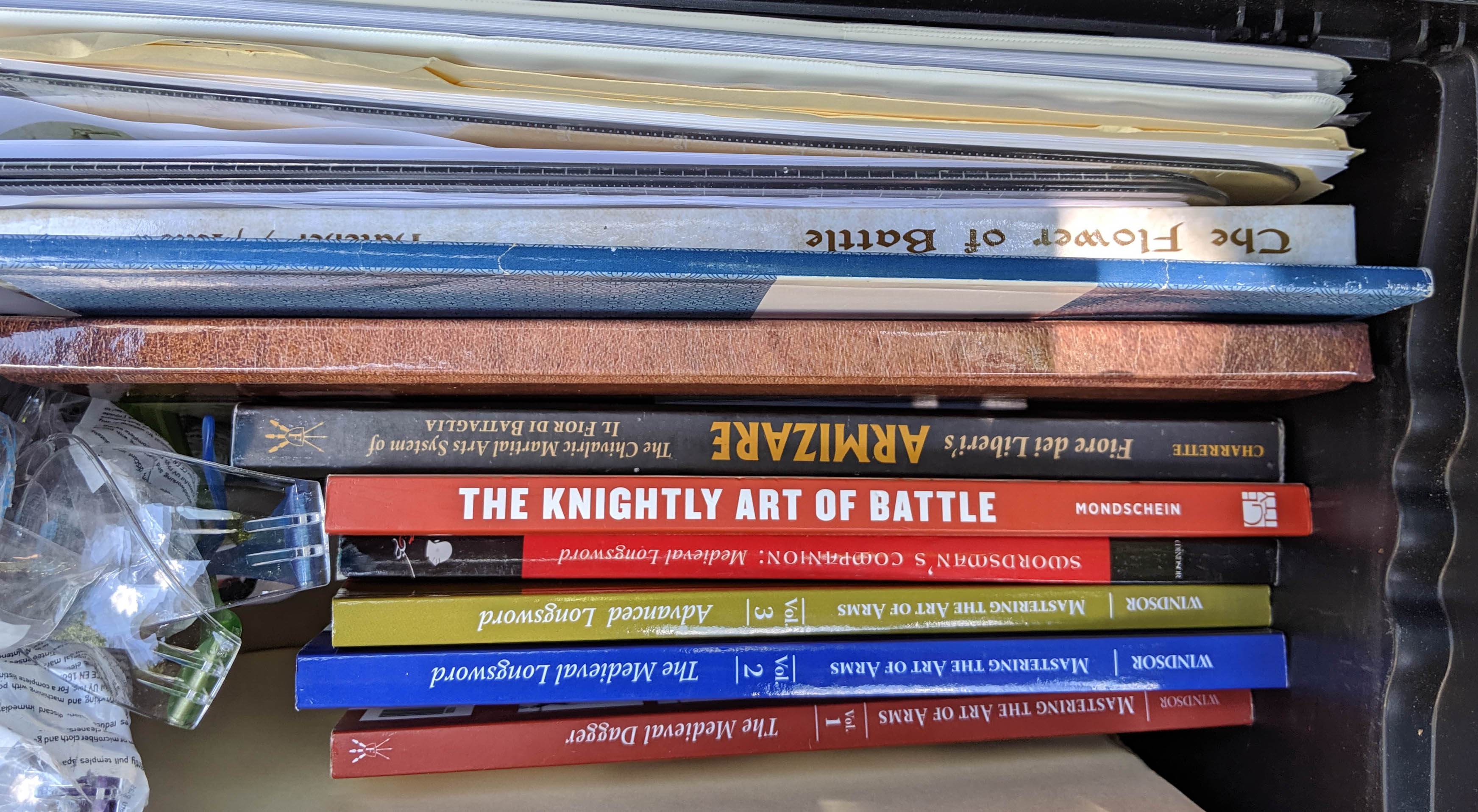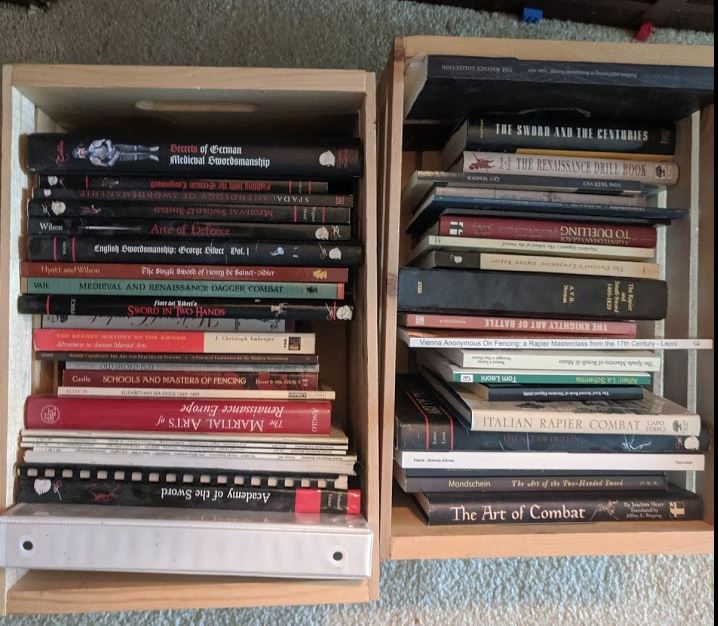As you have probably guessed, I have a substantial interest in Historic Martial Arts. My focus for many years has been on Fiore's combat system from 1409. I own perhaps a dozen books on that system alone and carry most of them around in a file folder box with other class supplies.

My traveling Fiore library, handouts, and safety glasses
But, I also have a large collection of non-Fiore HMA books. I keep them in wooden crates for easy carrying. I even do an HMA book report class every once in a while.

The Non-Fiore portion of my HMA Library
And, I am currently the Kingdom of Atlantia's Deputy Minister for Arts & Sciences for Historic Martial Arts. In that role I cheerlead, organize, and report on HMA activities in the Kingdom. Recently, Lord Linhart has been running a detailed plate study at his local practice and encouraging via Facebook others practices to participate as well. This detailed focus wasn't a good fit for many of the fencers at my local practice, so I decided to approach things a little differently.
A High Level Survey of Period HMA Techniques a.k.a. "Master-a-Month"
In order to generate local interest in HMA and to widen everyone's horizons, my approach is designed to hit the high points of a wide variety of Masters and systems. We study one for a little while and then move onto the next.
My Goals are:
- Introduce the process of reading and deciphering HMA texts, plates, and plays
- Expose students to a variety of historic approaches
- Enable identification of opponent techniques
- Encourage selection of a promising system for deeper study by a student
My Approach
- Select a different master each month
- Spend about 10 minutes at each practice that month studying and working through a different play or plate from that system
- Empower and support students who find something they want to study more deeply.
In an ideal world, we'll get multiple people interested in different systems. Then we can transition to doing more in depth study on different systems where we rotate through different lead instructors for each system. We'll certainly continue the detailed Fiore study for interested people and it would be great to be able to achieve similar depth with other systems. We can even return to high-level survey mode from time to time as new resources become available.
